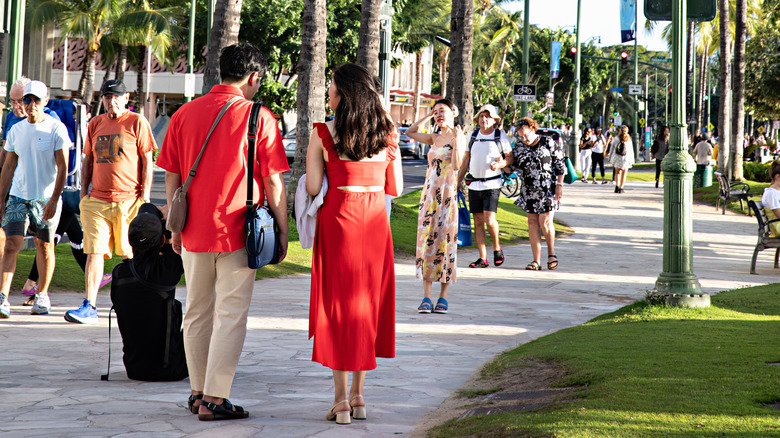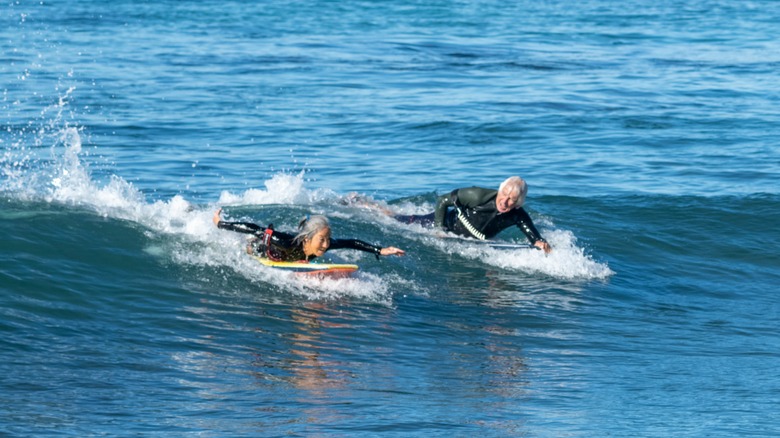Studies Show Moving To This US Vacation Hotspot Can Add Several Years To Your Life Expectancy
For Americans trying to choose where to settle down — whether for retirement, remote work, or a major lifestyle reset — the connection between geography and a healthy life matters more than ever. Research consistently shows that where you live influences your health through environmental quality, access to care, social connection, and daily lifestyle patterns. It's one reason interest keeps rising in states known for clean air, outdoor recreation, and low-stress living — places like Hawaii, which repeatedly ranks at the top for life expectancy. Conversely, data from the Centers for Disease Control and Prevention show several Southern states, including Mississippi, Louisiana, Alabama, and West Virginia, at the bottom of national life-expectancy rankings, often due to chronic disease rates, socioeconomic disparities, and limited access to preventative care.
Other states, meanwhile, outperform national averages, offering residents not just a different pace of life but, according to science, additional years of it. Understanding what sets these states apart can help anyone considering a move to align their health goals with their living environment. Among them, one popular vacation spot stands out more than any other for the extra years its residents tend to gain: Hawaii. This tropical state in the middle of the Pacific Ocean is one of the most popular holiday destinations for Americans, and it's no surprise why. Whether enjoying white sands at a luxurious beachfront hotel in Maui, experiencing Oahu's most thrilling surf breaks, or hiking around a crowd-free beach state park on the Island of Hawai'i, visitors are spoiled for outdoor activity and a restorative lifestyle. Living full-time here, though, and benefitting from the state's health-conscious culture all year-round seems to be offering its residents more years on Earth.
Residents of Hawai'i live longer than the average American
Research from the University of Hawaii at Mānoa in 2025 revealed that Hawaii residents live significantly longer than the average American. The study, published in the Hawaii Journal of Health and Social Welfare, found that the state's average life expectancy is 81.9 years, compared with the national average of 77.0 years. This figure echoes another study in 2020, where the average life expectancy in Hawaii was also 81.9 years.
Underlying these numbers are lifestyle and community factors identified by public-health researchers and local experts. Regular physical activity, access to outdoor recreation, a diet rich in fresh produce, and preventive care practices contribute to overall outcomes. Furthermore, the state has one of the lowest rates of cancer and cardiovascular disease in the U.S., a low population of smokers, and the second-lowest rate of obesity in the nation. Most Hawaiian residents are also medically insured, with only 4.4% uninsured, meaning more people have access to affordable and regular healthcare.
That said, the study also highlighted notable disparities across ethnic groups in Hawaii. While some communities, like those of Japanese and Chinese heritage, have been reported to have a life expectancy of 84 to 88 years, other groups, particularly Native Hawaiians and other Pacific Islanders, have lower life expectancies between 69.6 and 77.4 years. While living in Hawaii is certainly associated with a longer average life expectancy, some ethnic groups experience nearly 19 fewer years of life than others. Outcomes vary depending on income, education, housing stability, and access to healthcare, factors that researchers identify as key levers for improving equity across the islands.

